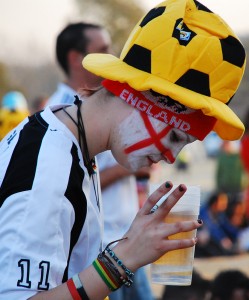I went to get my hair done yesterday, nothing fancy, just cornrows to get through the rest of the winter. Not being patient I knew that sitting in the hairdresser’s chair for close to three hours wouldn’t be easy. But I felt that the end justified the wait and the pain of having someone tugging at my scalp. I wanted a change. As I sat, watching the chaotic black-brown bush on my head become tame and transform into something new and orderly, it occurred to me that change is gradual, and sometimes painful. As much as I wished it were, change can never be an event, it is a process.
We are in the process of change. It’s difficult to tell what kind of change from one day to the next, or even if there is progression, particularly when sitting in the dark with a half cooked meal during winter. But there has been change.
The signing of the GPA was met with much jubilation, celebration and most importantly hope. It restored many Zimbabweans faith in their country and to some extent their leaders. Suddenly there was talk of a working economy, and things like democracy and rule of law returning to Zimbabwe. At the time, that hope was essential, but the faith was misplaced. The GNU was not meant to be the event at the end of the process: it is the process itself. The Inclusive Government isn’t everything: it is not efficient, it is not incorrupt, it is not a democratic dispensation, and it is not a perfect solution.
But it is a solution. Almost two years after the GPA has been signed, we are very articulate about what the Inclusive Government is not, and what it has failed to do. A survey taken by the Research and Advocacy Unit late last year posed the question ‘Do you feel that the GNU has improved your life?’
Significantly most people answered no.
Perhaps the entire perspective on the GNU and its purpose is wrong. It was never meant to be a lasting solution to a problem that took several decades to create. It was supposed to be a vehicle for change. Not just political change, but also change within ourselves. This change is indeed slow, and often painful. Never the less it is a change.











